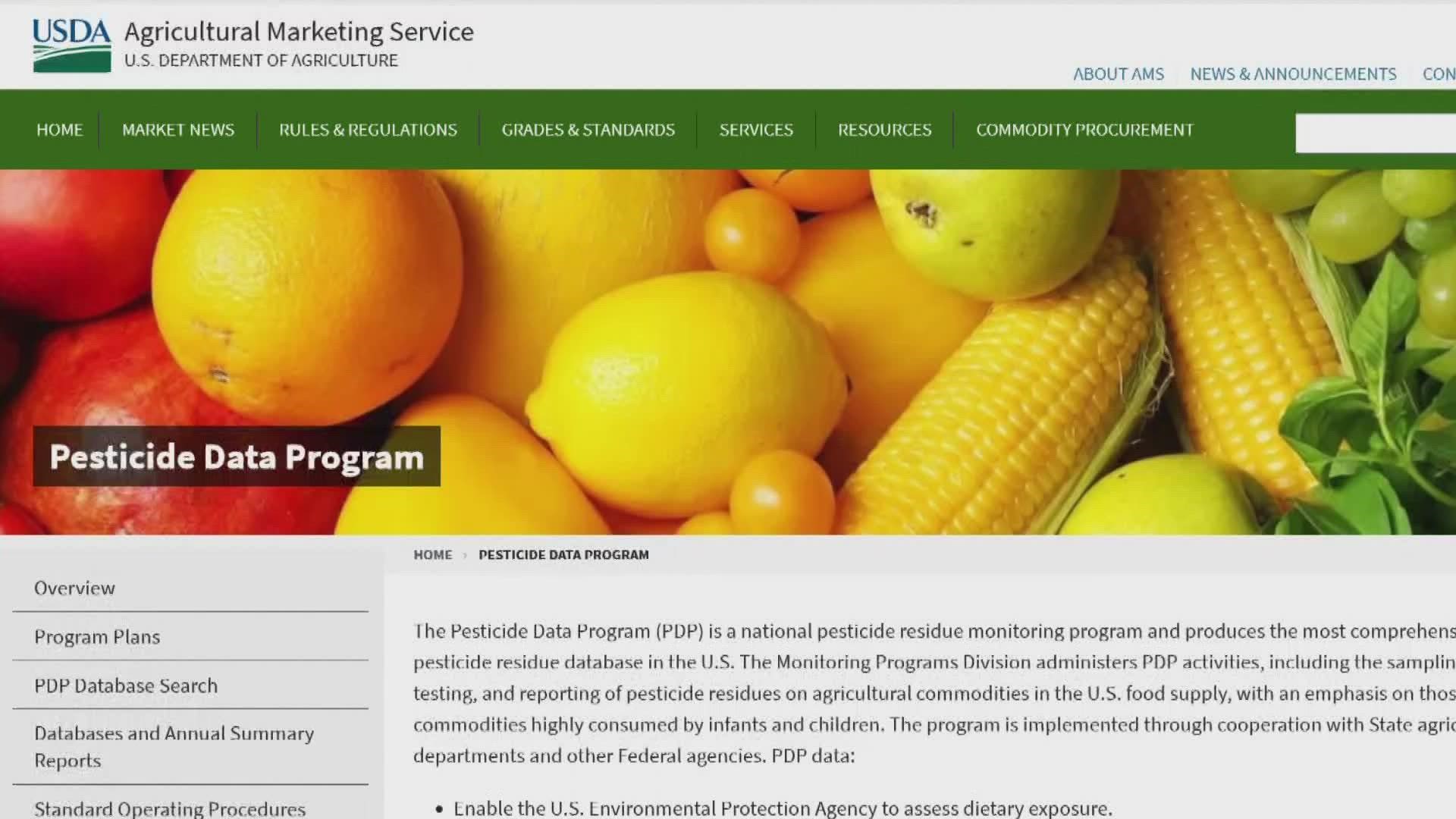MAINE, USA — A member of Maine's Board of Pesticide Control is raising concerns about a pesticide being used to kill weeds on broccoli crops in Aroostook County.
Dr. Jack Waterman says it's a nagging concern that keeps him up at night.
"I would not feed these treated plants to my children, to my family. I don't think anybody else would either if they knew about it," Waterman said.
The retired family physician is raising a red flag about a potential cancer-causing chemical, known as Oxyfluorfen, and EPA-registered herbicide, which kills weeds.
He is a member of the state's agency tasked with regulating pesticides and is part of the Maine Department of Agriculture, Conservation, and Forestry.
In February, he voted against a decision to allow Smith's Farms in Presque Isle, to expand the use of Oxyfluorfen, the active ingredient in the herbicide, known as Goal Tender, after the farm's broccoli crop had sprouted. The chemical has been allowed to be used only as a single application for agricultural purposes, since 2009.
"Oxyfluorfen (the active ingredient with herbicidal action in Goal Tender) has been registered as an herbicide in the United States for over 40 years. For example, it is used on many crops (avocadoes, bananas, broccoli, cabbage, grapes, olives, grain corn, and soybeans) to control weeds. Because it is used on foods, the USDA includes Oxyfluorfen in its pesticide testing surveys of produce sold in the United States," said Nancy McBrady, Director, Bureau of Agriculture, Food and Rural Resources, for the DACF.
Oxyfluorfen is also listed as a PFAS compound under Maine law, but not under EPA. PFAS are a class of manmade chemicals, used in a number of household products, and have been linked to cancer and other health problems.
Waterman worries about the impact on consumers over time.
"You are not talking about the cumulative amount of the chemical over years. As you know about PFAS, you can't eliminate it once it gets into your body," Waterman said.
In a report for the BPC, state toxicologist Pam Bryer said the USDA routinely tests for Oxyfluorfen as part of its Pesticide Data Program. That testing only found trace amounts have been found in treated broccoli and other vegetables after they were harvested.
"Current-use pesticides often degrade quickly and reach low or non-detectable concentrations by the time the treated commodity reaches the market," Bryer explained.
Repeated requests for comment from Smith's Farms, went unanswered. But farm representatives told the board the herbicide was their only effective option, and over the years, they have used fewer products and rotated fields every several years.
Maine State Representative, Bill Plueker (D) Warren, is an organic vegetable farmer in Warren who helped pass a law, LD 264 that will ban pesticides with intentionally added PFAS by 2030. He says there are safer alternative pesticides on the market but often don't work as well.
"But at the same time, if we look at the consequences of their repeated use on a piece of land, to the long-term contamination of ground and water, it doesn't pay for us as a society over the long term," Plueker said.
The new law also bans pesticide products that become contaminated by PFAS, through storage in fluorinated containers. The BPC still has to set up rules for enforcement.

